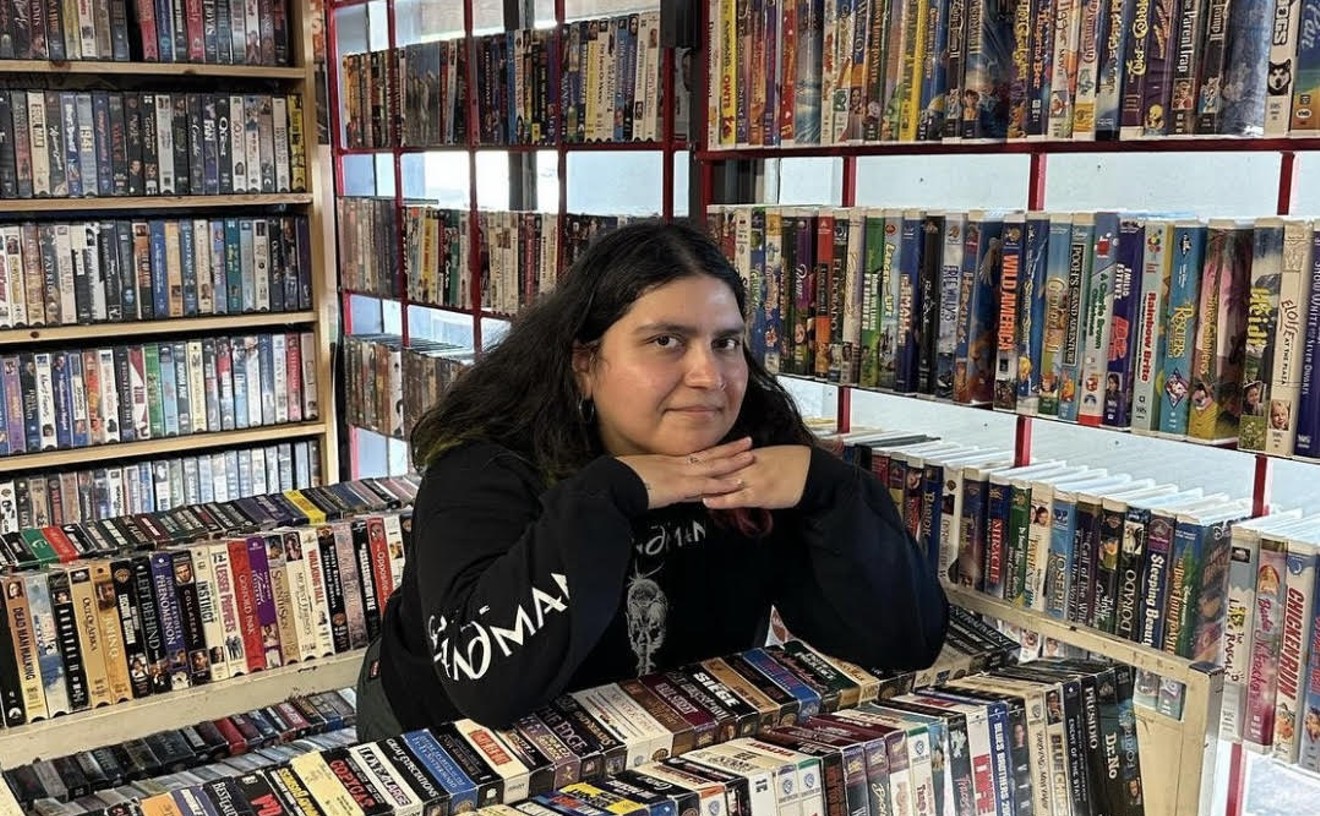Film critic Karina Longworth is reporting from the Toronto International Film Festival this week. See also: How Hollywood Movies Led to Genocide.
For maybe the first hour of Yellow (written and directed by Nick Cassavetes, the man responsible for the national treasure that is The Notebook), I kept thinking about another film premiering here in Toronto, Frances Ha, co-written by and starring Greta Gerwig, and co-written and directed by Noah Baumbach (Kicking and Screaming, The Squid and the Whale).
Frances Ha is a jazzy, black-and-white microbudget comedy of awkwardness about a drifting 20-something (Gerwig) who falls from limb to limb when her long-time best girl friend (Mickey Sumner) de facto "dumps" Frances to move into a swanky neighborhood and hook up with a boring boyfriend. Yellow is a magical realist technicolor drug movie about a pill-popping aging beauty (Heather Wahlquist) who burns her last bridge in L.A. and must return to the hick town where she's been storing her skeletons.
Both films are road-trip movies of a sort, and both are star vehicles built around, and in collaboration with, an actress with whom its director has been, or is, romantically involved. Both films are about the missteps, loneliness, hopes, dreams and even strange heroism of beautiful women who lack the ability to get (or keep) their shit together. Both films use music and/or musical numbers to semi-ironically conjure nostalgia for other films.
Other than that, they're wildly different movies. Yellow is so threaded with dreams and hallucinations that even the material it presents as straight is eventually called into question. Frances is, in style and subject, so closely wedded to reality on some counts (Gerwig's parents play Frances' parents; New York magazine recently ran photos of Gerwig's real-life apartment, which sure look similar to an apartment in which Frances lives in the film) that it wouldn't be a huge jump to assume that the whole of the film is creative nonfiction.
Frances is the more successful film on the whole, and certainly the more honest one, but it's also more contained and less ambitious. In the context of what Gerwig and Baumbach have done before (including the film they previously made together, Greenberg), it's not an unexpected movie. Yellow fails big and often, taking an ill-advised turn to hysteria in its final act, and totally unnecessarily explaining away its heroine's bad behavior through sordid backstory. But there's a certain magnetism to its inability to contain itself.
Maybe it was that sheer messiness that pushed me to figure out that what was making these movies speak to one another in my brain. And it struck me that both Yellow and Frances Ha seem touched by the spirit of Love Streams, the final personal film directed by Nick Cassavetes' dad, John, and starring his wife/Nick Cassavetes mom, Gena Rowlands.
Beyond a few obvious bits of connective tissue (Both Frances Ha and Love Streams have their female protagonists travel to Europe alone and immediately wish they were back at home; Yellow and Love Streams have hyperreal scenes involving opera), all three films pull off a very specific trick. They focus on female characters who are alone and lonely through faults of their own that the films aren't shy about revealing: All of these women cannot seem to play the roles, and by the rules, that govern everyone else around them. And the directors -- to paraphrase Manhattan, a film which seems a clear influence on Frances -- romanticize their damaged characters all out of proportion.
Is it gross to point to the muse card? It's hard to ignore that each of these movies were made by couples. The loving gaze of the camera is backed up with the lived experience of the male director's love for the female star, the movies sometimes play as though they're whispering a secret to those of us watching that no one on screen can hear.
Follow @KarinaLongworth on Twitter










